The AGO Student Commissioning Project is the AGO’s most recent new music initiative. Each year, grants of $1,000 are awarded to four collaborative composer-and-organist pairs for the composition and performance of four new works for the organ. In the fall, as the academic year begins, a student pair submits a joint application describing a proposed work and its performance. There are no restrictions with regard to a work’s compositional style; however, all composers and organists must be enrolled as full- or part-time students at an accredited U.S. college, university, or conservatory. After the new work is approved by the AGO Committee on New Music, the organist must premiere the work and provide a video recording. 2025 Project Guidelines.
Award: Four grants of $1,000 will be awarded each year to four composer and organist pairs by the AGO Committee on New Music.![]()
2024 Award Winners
Four composer-organist student pairs were selected in the fall of 2023: Cheng Jin Koh (composer) from New York University and Isaac Lee (organist) from the Juilliard School; Felicity Mazur-Park (composer) from Texas Christian University and David Aaron Preston (organist) from Yale University; Ryan McQuay Meredith (composer) and Joseph Maxwell Ossei-Little (organist) from Syracuse University; Tian Qin (composer) Rice University and Yilun Wang (organist) from Manhattan School of Music. Videos of their winning compositions are below.
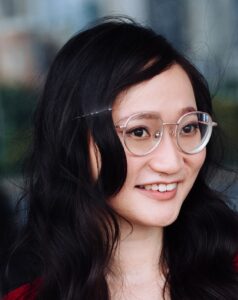
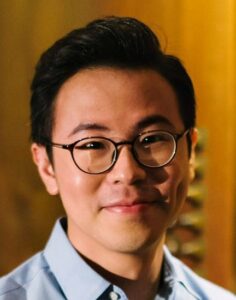
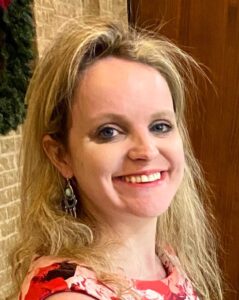
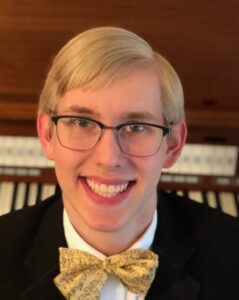

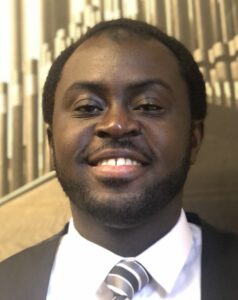
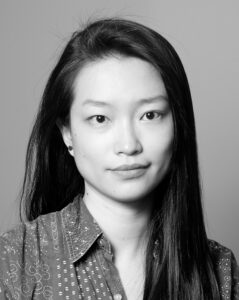
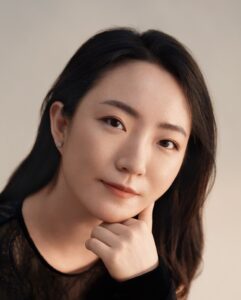
2024 Award Winning Projects
Isaac Lee plays Geylang sipaku Geylang by Cheng Jin Koh
My first theme and variations is based on the beloved local Malay folk song Geylang Sipaku Geylang in Singapore. It is a “coming home” song—while its lyrics are not fully definitive, the song is often associated with the Malay community’s strong sense of belonging to Geylang Serai, one of the oldest Malay settlements in 1890s Singapore. Most children learned to sing this in elementary school, and it was one of my personal favorites because of the lyrically nostalgic nature of the melody. It is not common to hear a folk song interpreted on the majestic organ, which roused my desire to designate it as the primary instrument. Paying homage to various musical styles, the variations gradually become less recognizable and more abstract as time progresses, before closing with a grand chorale finale. The text, in traditional Malay pantun style (4-lined verse with alternating, roughly rhyming lines), goes: “Geylang sipaku Geylang (Geylang full of ferns), Geylang si rama-rama (Geylang full of butterflies). Mari pulang, marilah pulang (Come, let’s go home), Marilah pulang, bersamasama (Let’s go home together).” (Translation by Jason Ong, 2011)
Joseph Maxwell Ossei-Little play Polluted Skies by Ryan McQuay Meredith
Polluted Skies is the result of an intensive collaboration between Joseph Little and Ryan Meredith at Syracuse University. The duo first met in an Advanced Tonal Analysis class. They both had interests in expanding the repertoire for organ, influencing them to apply for the American Guild of Organists Student Commission Project. Throughout the process, they frequently met at the historic Holtkamp organ in Crouse Auditorium, exchanging sketches and developing registrations. Together, Ryan and Joseph were able to create something entirely new for the organ. The piece explores cloud-like atmospheres in two movements. The first movement, “Clouds,” rotates some peculiar chords through a series of spaces. Between these chords, short flourishes emerge like stars shining through a midnight haze. The second movement, “Stars,” explores these same star-like flourishes through a cycle of polyrhythms. Eventually, the stars emerge from the rhythmic texture and completely fill the sky.
David Aaron Preston plays Ti Appartengo by Felicity Mazur-Park
Ti Appartengo is based on Carlo Gesualdo’s madrigal Io Parto e Non Più Dissi, which was written before, but published after Gesualdo’s famous murder of his adulterous wife and her lover. In the madrigal, Gesualdo pronounces that he is leaving, but later decides not to leave when he sees that his wife (referenced as the mythological Chloris) is sad and depressed at the prospect of his absence. She is dependent on his love for her personal happiness. In essence, she belongs to him, as my work’s title suggests. Compositionally, I segment portions of the madrigal and its text. I add quartal and quintal harmonies and develop selected motivic fragments through retrograde, inversion, and sequencing to paint the drama.
Yilun Wang plays Panthea by Tian Qin
Coming from Greek, “Pan-” means all or every; and “-thea” relates to the gods or deities. I interpret that “Panthea” means that all beings are divine. This composition is about a goddess who is empowered but without knowing her true strength. She enters the infinite space, the darkroom, by chance, and discovers the element of mud. She infuses love and creative energy into the mud. Mud transforms into countless living beings that are molded in her own image. She wonders who they are, and then realizes they are all herself in every other form, with the same power as she does. Performers of the piece should embody this character to form their perception.
Committee on New Music
Alexander Meszler, DMA, Director Email
Elisa W. Bickers, DMA, FAGO Email
Anne K. Laver, DMA Email
Bruce E. Neswick, MM, FRSCM, FAGO Email
Peggy Haas Howell, ex officio (Vice President/Councillor for Competitions and New Music) Email
AGO Headquarters Email


